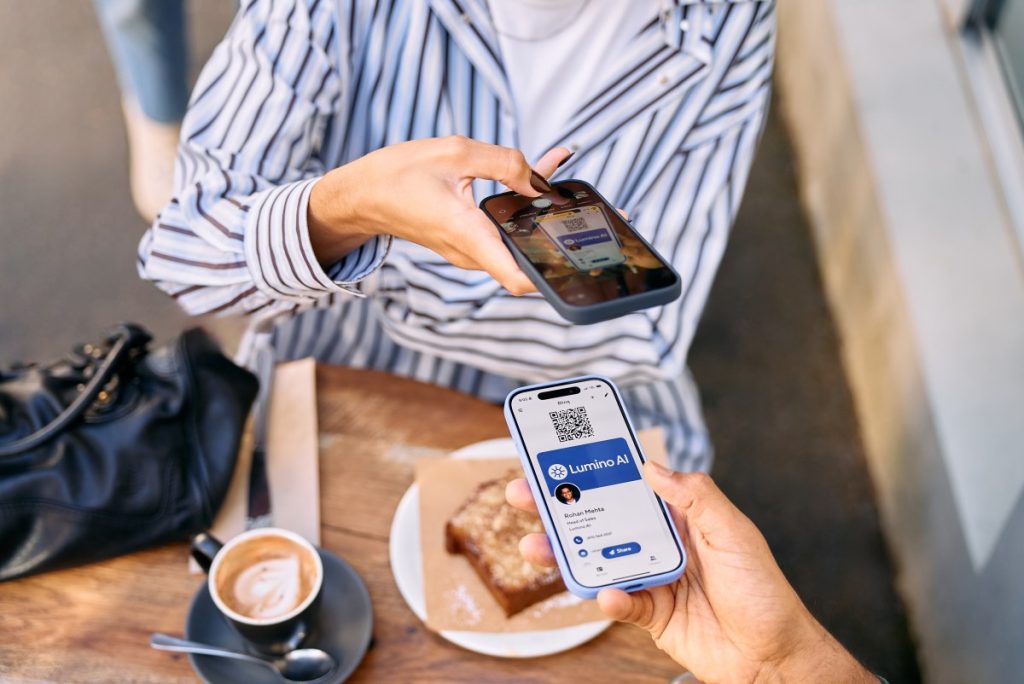It is 2025, but business cards are still in vogue: just visit any conference or expo of the sector and you will end with a pile that is likely to be discarded sooner or later. But since smartphones have become our information and contact repositories, people are understandably eager to try digital alternatives to business cards.
Blinq, a Melbourne startup, bets that the trend would take off when it started as a hobby project in 2017, offering a digital business card app with a QR code widget. Today, the company is leaving a gold bag: now it has more than 2.5 million users, both individual customers and 500,000 companies in the United States, Canada, the United Kingdom and Australia.
Outside the back of that progress, the startup has now collected a 25 million dollar Serie A financing round led by Touring Capital. The return supporters of Blackbird Ventures and Square Peg Capital also participated in the round, as well as the new Hubspot companies.
“(The Blinq QR) It was a simple and personal way of sharing who you are, and it worked well among iPhone users. But it was not until the end of 2019 when most of the Android devices reached the scan of QR and the adoption started to grow,” he told Techcrunch Jarrod Webb, CEO and founder of Blinq. “Then Covid-i Codes QR came, they became mainstream, the meetings in person became more intentional and Blinq’s attention to make those moments without continuity and memorable started to take off.”
The startup has taken the B2C2B route since then. The app allows users to create several digital visitor customs for different needs and connect with the contacts that use them. The app can also automatically acquire details and synchronize them with CRM systems such as Hubspot or Salesforce using QR, and -mail, NFC, short connections or background of video calls.
Blinq is used by people, small businesses and global companies and 80% of its customer base are located in the United States, said Webb. His team has reduced from five employees based in Melbourne to 67 throughout Sydney, Melbourne, New York and San Francisco, supporting product development and go-to-market efforts.
“Every time someone uses Blinq, it introduces it to someone new. And also, we see a more frequent use by the longer active users are on the platform,” said Webb. “That integrated virality guides organic growth and maintains the acquisition costs of our customers low. As regards business, companies pay by office. While more employees adopt the product, the teams grow organically, creating expansion entrances over time.”
Techcrunch event
Berkeley, ca.
|
June 5th
Book now
Blinq competes with several companies that provide similar digital business cards, including Mobilo, Popl, Wave and Wix. Of course, the app must also deal with social network platforms such as LinkedIn, Landing Page and services such as Linketree.
But Webb feels that Blinq is more suitable for the construction of relationships and provides users with more ways to follow and interact with new contacts.
Webb sees digital business cards as a simple endpoint. “I am our Cuneo. Because when you are the instrument of trust at the moment a relationship begins, you gain the right to model what follows. We are focused on giving people everything they need to transform the first impressions into a real-to-it-to-dynamic impetresses rich in context to intelligent ways to stay on top of the mind. This means expanding in the new markets, deepening our presence with businesses and businesses and the businesses in which people in They are quick to quickly. evoke The way people are changing quickly “.



